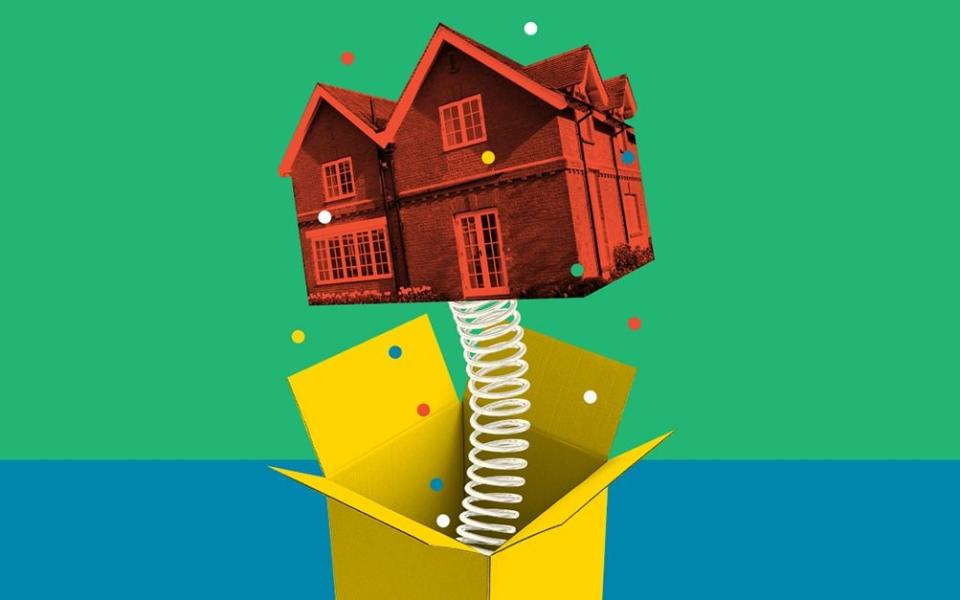House prices surge £29k in largest cash jump on record

The average home costs £29,000 more than a year ago, as the housing market recorded its biggest cash jump on record.
Buyers scrambling to lock in low mortgage rates ahead of interest rate rises pushed home values up 12.6pc year-on-year in February, according to Nationwide building society.
After June 2021, when the end of the stamp duty holiday triggered a race to complete by the deadline, this was the fastest annual growth rate on record since January 2005, when the property market was booming before the financial crisis.
An extreme shortage of supply has pushed the average UK house price above £260,000 for the first time in history, according to Nationwide building society.
The average house price in February was £260,230, a jump of £29,162 from this time last year.
Robert Gardner, of Nationwide, said: “This is the largest ever annual increase in cash terms since the start of our monthly index in 1991.”
Andrew Montlake, of mortgage broker Coreco, said: “Even though rates are rising, we are still in an extremely low interest rate environment with competition among lenders fierce, and this will continue to drive a certain level of transactions.”
The pace cannot last, he warned: “Don’t expect this pace of growth to continue, as there are countless headwinds ahead.”
Homes cost £44,138 more than in February 2020 – a 20pc rise since the pandemic began.
Monthly growth jumped to 1.7pc, equivalent to a gain of nearly £5,000 in a single month. This was a significant rise from January, when the monthly change was 0.8pc.
Analysts expressed surprise at the pace of growth in the face of rapidly rising inflation, the cost of living crisis and rising mortgage rates.
“The strength is particularly noteworthy since the squeeze on household incomes has led to a significant weakening of consumer confidence,” said Mr Gardner.
He warned that this level of growth would not continue. “It is likely that the housing market will slow in the quarters ahead,” said Mr Gardner.
The war in Ukraine and the resultant jumps in oil and energy prices will push inflation even higher and increase the strain on household finances. Meanwhile, the Bank of England is still expected to keep raising interest rates.
Consultancy Capital Economics has forecast the Bank Rate will hit 2pc in 2023. “This will exert a further drag on the market if this feeds through to mortgage rates. Housing affordability has already become more stretched,” said Mr Gardner.
Rapid house price growth means the average home now costs 6.7 times average earnings, up from 5.8 in 2019.
Short-term, however, the war could further spur activity. Lucy Pendleton, of James Pendleton estate agents, said soaring inflation in the wake of the Ukraine crisis would be key.
“This is likely to weigh on house price growth nationally in the coming months, particularly in those areas that have seen the biggest increases over the past year and a half, but it will also encourage prospective buyers to move their plans forward to beat higher borrowing costs,” she said.
Andrew Wishart, of Capital Economics, said: “We expect rising mortgage rates and the drag from inflation on household finances to cause house price growth to slow to a crawl later this year.”

 Yahoo Finance
Yahoo Finance 